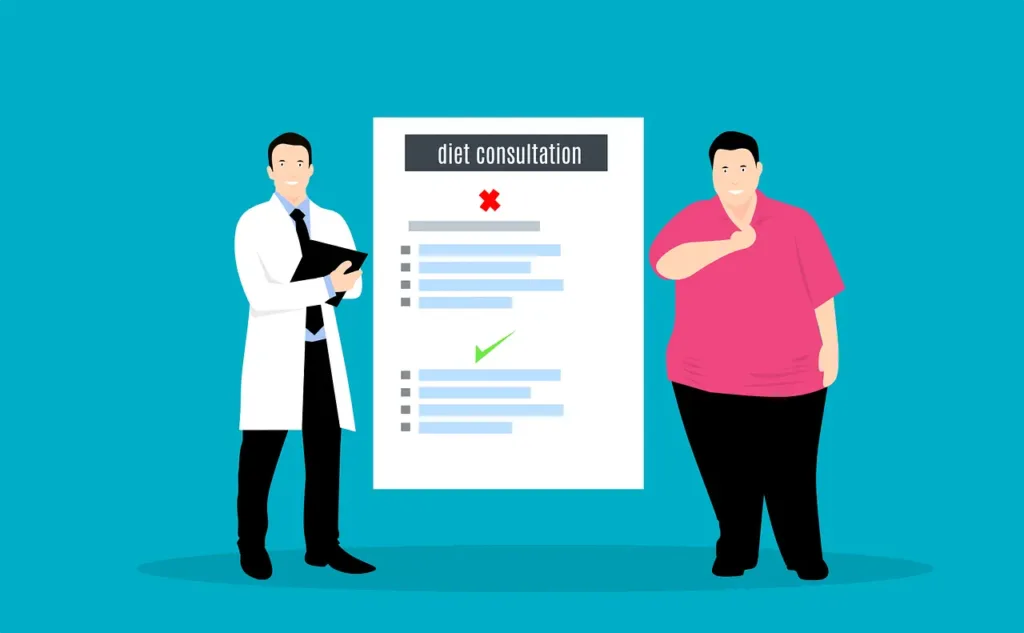Weight Gain Diet Plan
Gaining weight can be a difficult task for some people, especially those who have a fast metabolism or struggle with a lack of appetite. However, with the right combination of nutrients and a consistent routine, it is possible to gain weight in a healthy way. In this article we will discuss what should be part of a daily healthy eating routine to gain weight.
Before diving into the details of a healthy diet for weight gain, it’s important to understand the basics of how weight gain occurs. To gain weight, you must consume more calories in a day than your body burns. This means you need to consume more calories than you expend through daily activities and exercise.
However, it is crucial to acknowledge that not all calories possess the same nutritional value. Eating lots of calories from junk food and sugary snacks can lead to weight gain, but it can also have negative health consequences, including an increased risk of heart disease, diabetes, and other health problems. Therefore, it’s important to focus on nutrient-dense foods that provide your body with the energy and nutrients it needs to function properly and support weight gain.
Protein:
is one of the most important macronutrients for weight gain as it is essential for building and repairing muscle tissue. Muscle tissue is denser than fat, which means that building muscle can lead to weight gain without necessarily increasing body fat. Additionally, resting muscle tissue burns more calories than fat tissue, which means that increasing muscle mass can also boost metabolism.
To ensure you are consuming enough protein, it is recommended that you consume at least 1 gram of protein per pound of body weight per day. Good sources of protein include lean meats like chicken and turkey, fish, eggs, dairy, and plant-based sources like beans, lentils, tofu, and nuts.
Carbohydrate:
is another important macronutrient for weight gain as it provides the energy your body needs to function and support physical activity. Complex carbohydrates like whole grains, fruits, and vegetables are preferred, it is recommended to prioritize complex carbohydrates over simple carbohydrates, such as processed foods and sugary snacks, as they provide enduring energy and contain substantial amounts of fiber, minerals, and vitamins.
Along with protein and carbohydrates, healthy fats are also an important part of a weight gain diet. Fats provide energy and help absorb fat-soluble vitamins like vitamins A, D, E, and K. Seeds, olive oil, avocados, nuts and fatty fish like salmon are good sources of healthy fats.
In addition to focusing on nutrient-dense foods, it is also important to pay attention to portion sizes and meal frequency. Eating large meals can be challenging for people with small appetites, so it may be more beneficial to focus on smaller, more frequent meals throughout the day. This can help prevent bloating and help you get the calories you need.
It’s also important to incorporate physical activity into your daily routine, as exercise can help build muscle and gain weight. Strength training exercises such as weightlifting or bodyweight exercises are particularly beneficial for building muscle mass. In addition, physical activity can help increase your appetite and make it easier to get enough calories.
Another important aspect of healthy weight gain is getting enough sleep. Lack of sleep has been linked to an increased risk of obesity and weight gain. This is because lack of sleep can disrupt the hormones that regulate appetite and metabolism, this can result in an escalation in appetite and a yearning for unhealthy foods. Aim for getting 7 to 9 hours of sleep per night to maintain healthy weight gain.
Healthy Weight Gain: A Balanced Approach
Stress is another factor that can affect weight gain. Chronic stress can lead to increased levels of the hormone cortisol, which can cause the body to store fat, particularly in the abdominal area. Finding healthy ways to manage stress, such as Exercise such as practicing mindfulness or relaxation techniques can be beneficial for overall health and weight management.
Diet: Focus on Nutrient-Dense Foods
Along with a healthy diet, regular physical activity is critical to healthy weight gain. Exercise helps build muscle mass, which not only increases weight but also boosts metabolism. It also increases your appetite and makes it easier to eat more calories. Strength training, such as weightlifting or bodyweight exercises, is particularly effective for building muscle mass. Aim for at least 30 minutes of physical activity most days of the week, gradually increasing the intensity and duration as endurance builds.
Sleep Hygiene: Importance of a Regular Sleep Cycle
In addition to diet and physical activity, it is important to practice good sleep hygiene. Lack of sleep can affect the body’s metabolism and hormonal regulation and lead to weight gain. Inadequate sleep also disrupts the appetite-regulating hormones leptin and ghrelin, increasing hunger and cravings for high-calorie foods. So, try to get 7-9 hours of sleep every night and establish a regular sleep-wake cycle.
Motivation: Persistence and Support Network
Finally, staying motivated and persistent in your weight gain process is important. Gaining weight can be a challenging process, but it can be achieved with consistent effort and patience. Establish achievable targets, monitor your advancement, and incentivize yourself upon achieving milestones. Create a support network of friends and family who can provide inspiration and encouragement.
Conclusion: Celebrate Progress in Your Weight Gain Journey
In summary, healthy weight gain requires a balanced approach that includes a nutritious diet, regular physical activity, good sleep hygiene, and endurance. It’s important to eat more calories than your body burns, but not all calories are created equal. Focus on eating whole, nutrient-dense foods that provide energy, protein, carbohydrates, and healthy fats. Incorporate strength training and other forms of physical activity into your routine to build muscle mass and boost metabolism. Practice good sleep hygiene and try to get 7-9 hours of sleep each night. Finally, stay motivated and persistent in your weight gain journey and celebrate your progress along the way.

